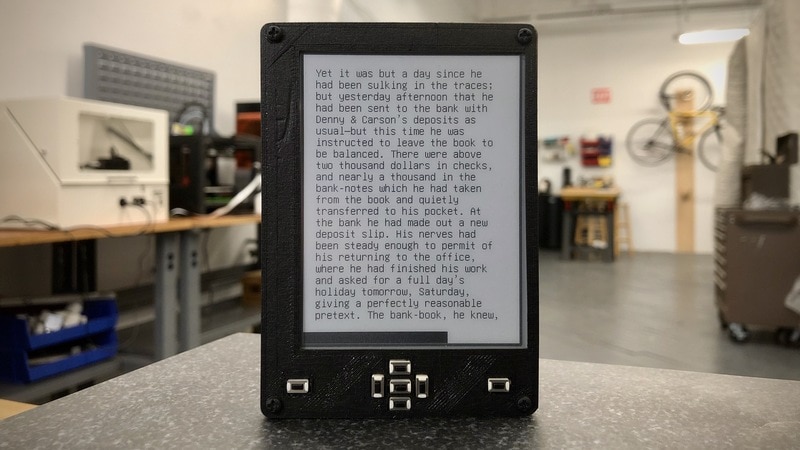The extremely tiny screen is the deal-breaker for me, I want to build one of these for my father to replace the over a decade old kindle he uses, but I want to upgrade to a bigger screen.
We can’t afford much, and we have a 3d printer and I know my way around a Pi and wiring, so it would be a great option.
But such tiny display for what should be an upgrade from the tech of 10+ years ago :-(
Aren’t all e-readers tiny? I want an A4 sized one (with a stylus for taking notes and scribbling).
There are A4 e-readers. Bamboo note for example.
Yes I’ve seen one. Maybe there are more now than when I looked, but at that time there weren’t enough to be able to make a choice as a consumer.
Onyx Boox has the Note Air 3(10in) and the Tab X(13in). They aren’t cheap though, $400 and $900 respectively, mostly because of how expensive those large eInk screens are.
Inkplate 10 is not tiny (10"). I’d prefer larger but it’s a start, and fairly affordable. I might get one sometime.
The problem is that such open hardware projects can mostly only work with the components on the market, and eInk displays (or advanced displays in general) are principally only sold by their manufacturers to the OEMs they have contracts with. We are lucky to have any eInk display available to us at all for these kinds of endeavours!
This, plus making bigger eink displays with reasonable refresh and antighosting is a pain. They are proportionately more expensive.
Except I’m dead certain you can buy screens a lot larger than 4.2 inches - the 6 inch screen behind the Kobo Clara HD is actually all over AliExpress and eBay, and it has a backlight and is not marketed for as a replacement for the eReader. Kobo just glues a thin metal plate and a battery to it for rigidity, but otherwise it’s identical. And there are a fair number of other screens you can find online in various sizes if you want to get them working.
The hard part is getting data sheets or reverse engineering them. But it’s far from impossible.






